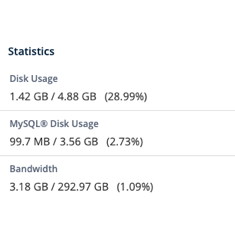Unanswered Questions regarding Open Source software
July 9th, 2011
Although I took the time to write an entire blog post on open source software, I realized I posed several questions, which I didn’t bother answering. They weren’t exactly rhetorical, they were examples or at least indicative of the questions I’d been asked regarding open source software in job interviews.
Remember I’m still unemployed!
This week I actually volunteered considerable hours helping the W2 Media Cafe finally open the cafe part of their operation. It still is not open, but I believe they have chosen the last of their vendors and once the final equipment gets installed, they should have a soft launch sometime this month. This week has also seen some big news stories come across the wire. The one that I’ve probably devoted the most time reading about is the public beta of Google+. Civ World is also in public beta, but seems to be still a bit buggy. I’m not a big believer in browser based gaming.
Neither Google+ nor Civ World were big successes.
Unanswered Questions:
- How open source software can be used by corporations, or how startups can make money leveraging open source software?
- What are your assets if all your company does is contribute to and work with open source software? How do you assign a value to such a company?
It would be hard to find a corporation that doesn’t use Open Source software. Apache has the dominant share of the web server market. MySQL and PHP are also on most every webserver. Lots of the programs and services that hold the web together and make it work are open source. Startups, particularly those founded by Generation Y, can run most of their business with open source software or Software As A Service offerings. Even servers are no longer necessary as you can lease storage space and processing power from the cloud. Amazon is a leader in this field and several hot internet startups run on Amazon Web Services.
One of the best articles I’ve read on Venture Capital and the startup ecosystem came across my desk recently. You should give it a read if you’re interested in technology startups and how they are funded.
Freed of hardware and software startup costs, new IT companies can concentrate on innovating, development, and the pursuit of paying customers. Monetizing eyeballs is so 1990s, even if it is a much more viable business model now than back then. Companies need to look beyond AdWords to marketing tie-ins, partnerships with larger companies, and premium services. LinkedIn is an example of a company that has successfully made money in the social networking space, partly by offering premium services to individuals and organizations. They also get revenue from traditional in browser advertising.
Recurring revenue from a subscription or support model has proven successful for open source focused companies.
If your company gives away all its source code, what are it’s assets? Most large software companies contribute to open source projects, even Microsoft. However they also keep a lot of their code, this is an asset and a potential competitive advantage. This non-open source code is an asset in the accounting sense, but the biggest value is in a company’s employees and the knowledge and expertise they possess. IBM moved from a hardware company to a company that makes most of its money through consulting. Red Hat is a company which generates the majority of its revenue providing support and expertise on open source software particularly Linux. Analysts have no trouble assigning a value to IBM or Red Hat, their shares are publicly traded.
IBM eventually brought Red Hat, wonder if they read this blog?
Valuing a startup is a bit different from valuing a more mature firm. However a number of methods exist and those methods will work just fine for startups that leverage and contribute to open source software. Funders are more sophisticated and willing to invest in startups leveraging open source technology rather than relying exclusively on proprietary systems which count as assets on their books.
This entry was originaly posted on , it was last edited on and is filed under: Technology and tagged: Open Source, SAAS, Valuation, Venture Capital.




